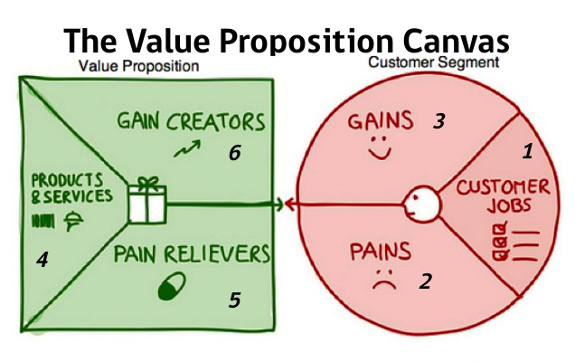It’s not enough to have a good idea. In order to be successful, a product needs a value proposition to clearly answer the question “Why would someone be willing to purchase this product?” A value proposition is a clear statement that explains your product’s relevancy, quantified value, and unique differentiation. Communicating this persuasively is difficult though.
Learning to understand the importance of the value proposition, as well as how to create one is a core component of several of the Innovation Institute’s commercialization programs, such as First Gear and Blast Furnace. Blast Furnance Director, Greg Coticchia cites the three biggest mistakes of value propositions as the following: too technology-oriented, failure to validate with real customers, and overestimating the value relevant to the behavior change required. Understanding the customer’s perspective is the key to a successful value proposition.

“People always forget that one of their biggest competitors is apathy,” says Coticchia. Value propositions should present market differentiation; your product needs to resonate enough with a certain target market to motivate a change in behavior by buying your product or switching from their current way of solving a problem.
Value propositions need to have fit between perceived value and realized value to the customer. The only way to test your value proposition is with potential customers. Get feedback and make sure that the product benefits match up with customer expectations. Create value by prioritizing what your product offers, how it creates the results customers want, and how it limits the results customers do not want. It important to recognize that different customers segments (clusters) will interpret each of these elements differently. Map your value proposition and its pains and gains to each customer segment and test, test, test.
All in all, your value proposition should answer the questions:
1. How does your product solve customers’ problems?
2. What specific benefits does your product deliver?
3. How is your product different from competing ones and why should someone buy it?
A value proposition is a critical element of strategy, core to the business model, and the foundation from which your communication messages are created. The significance of the value proposition should not be underestimated and validating it with customers is a must-have. Getting feedback on your value proposition can help you avoid wasting time on ideas that won’t work – and that’s inVALUEable.
For Pitt innovators and students interested in commercialization, check out our programs to learn more about the possibility of taking your innovation to market.
Material in this blog is based on Strategyzer.com